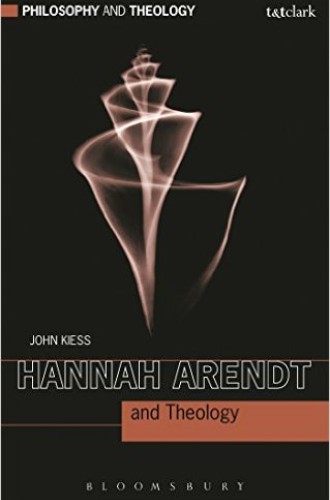Hannah Arendt and Theology, by John Kiess
Some of the elements of totalitarianism that political philosopher Hannah Arendt identified in 1958—“imperialism, the emergence of the masses, the rise of European pan-nationalism, the expulsion of minorities and stateless people”—are unsettlingly familiar in today’s world. Arendt’s relationship to theology (and particularly to Augustine) is widely contested, but her usefulness to contemporary political thought is not. Kiess clearly and wisely explores Arendt’s views on evil, plurality, love, thinking, and the birth of the new. He then hints at how these ideas might call Christians to live justly in a broken world. Balancing political realism with an openness to grace is not easy. But Arendt and Kiess propose just such a balance, so that “politics becomes the art of being born.” Incarnation abounds.





